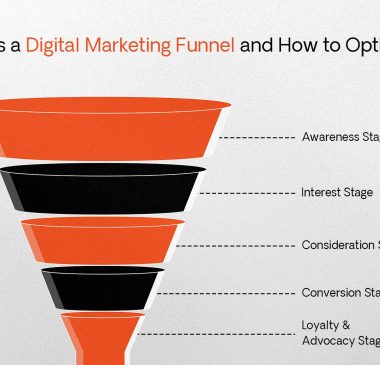In today’s digital age, traditional marketing methods are no longer sufficient to keep up with the competition. Accounting firms, like many other businesses, need to leverage digital marketing to stay relevant, attract new clients, and grow their business. This blog explores how digital marketing can benefit accounting firms and provide practical steps to get started.
Understanding Digital Marketing
What is it?
Digital marketing encompasses all marketing efforts that use the internet or an electronic device. Businesses leverage digital channels such as search engines, social media, email, and websites to connect with current and prospective customers.
Key Components of Digital Marketing
- SEO (Search Engine Optimization): Improving your website’s visibility on search engines.
- Content Marketing: Creating and distributing valuable content to attract and engage an audience.
- Social Media Marketing: Using social media platforms to promote your services and engage with your audience.
- PPC (Pay-Per-Click) Advertising: Paying for ads to drive traffic to your website.
- Email Marketing: Sending targeted messages to potential and current clients.
Benefits of Digital Marketing for Accounting Firms
Increased Online Visibility
Digital marketing for accounting firms is crucial to improve their online presence. By optimizing your website with SEO and PPC, your firm can rank higher on search engine results pages (SERPs), making it easier for potential clients to find you.
- SEO: Implementing SEO strategies helps your website appear in relevant searches. This includes keyword research, optimizing meta tags, and creating quality content.
- PPC: Running PPC campaigns can give your firm immediate visibility. These ads appear at the top of search results, driving more traffic to your website.
Targeted Marketing and Lead Generation
Marketing allows accounting firms to target specific audiences more effectively.
- Social Media: Platforms like LinkedIn, Facebook, and Twitter enable you to reach and engage with your target audience. You can share industry news, tax tips, and other valuable content.
- Content Marketing: By creating informative blog posts, whitepapers, and videos, you can attract potential clients looking for expert advice.
- Lead Generation: Implementing lead magnets like free consultations or downloadable guides can capture potential clients’ contact information.
Enhanced Client Engagement
Engaging with clients regularly is essential for building long-term relationships. Digital marketing provides various tools to maintain communication.
- Social Media: Engage with your audience through posts, comments, and messages. Share updates, answer questions, and show your firm’s human side.
- Email Marketing: Regular newsletters can keep clients informed about tax deadlines, changes in regulations, and other relevant news.
- Website: Maintain an informative and user-friendly website where clients can easily find the information they need.
Building Credibility and Trust
Establishing your accounting firm as a credible and trustworthy business is vital. Digital marketing for accountants can help build this trust.
- Content Marketing: Share your expertise through blog posts, case studies, and whitepapers. Providing valuable content helps establish your firm as an industry leader.
- Testimonials and Reviews: Display client testimonials and reviews on your website to build trust with potential clients.
- Professional Branding: Consistent branding across all digital platforms reinforces your firm’s identity and professionalism.
Cost-Effective Marketing
Digital marketing is often more cost-effective than traditional marketing methods.
- Lower Costs: Compared to print or TV ads, digital marketing channels like social media and email marketing are relatively inexpensive.
- Measurable ROI: Digital marketing campaigns can be tracked and measured, allowing you to see which strategies are most effective and adjust accordingly.
Data-Driven Decision Making
One of the significant advantages of digital marketing is the ability to collect and analyze data.
- Analytics: Tools like Google Analytics and social media insights provide valuable data on website traffic, user behavior, and campaign performance.
- Refining Strategies: Use this data to refine your marketing strategies, ensuring you target the right audience and use the most effective tactics.
Practical Steps for Implementing Digital Marketing
Developing a Marketing Strategy
- Define Goals: Determine what you want to achieve with your digital marketing efforts (e.g., increased website traffic, more leads, improved client engagement).
- Identify Target Audience: Understand who your potential clients are and where they spend their time online.
- Create a Plan: Develop a comprehensive plan that includes SEO, content marketing, social media, PPC, and email marketing.
Starting with SEO, Content Marketing, and Social Media
- SEO: Conduct keyword research, optimize your website’s content, and build quality backlinks.
- Content Marketing: Create valuable content that addresses your clients’ needs and pain points.
- Social Media: Choose the platforms most relevant to your audience and consistently post engaging content.
Regular Monitoring and Optimization
- Track Performance: Use analytics tools to monitor your campaigns’ performance.
- Adjust Strategies: Continuously refine your strategies based on data insights to improve results.
Conclusion
Digital marketing for accounting firms offers numerous benefits, from increased visibility and targeted marketing to enhanced client engagement and cost-effective solutions. By understanding and implementing digital marketing strategies, accounting firms can attract more clients, build credibility, and achieve sustainable growth.
Call to Action
Ready to boost your accounting firm’s digital presence? Contact us today to get started on your journey to growth and success!
































